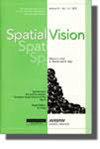THE EFFECT OF WORD WEBBING TECHNIQUE ON THE STUDENTS’ VOCABULARY MASTERY
引用次数: 0
Abstract
The objective of this study is to find out whether the students’ vocabulary mastery thaught by word webbing technique is better than without word webbing technique. The method of this research was quantitative with the experimental research design. The population of this study was the 48 students at seventh grade of SMP Swasta Galih Agung with two groups, experimental class consists of 21 students and control class consists of 27 students. The researchers taught the experimental class by using word webbing technique and control class taught without using word webbing technique. To collect the data the researchers used vocabulary test in multiple choice as the instrument. The post-test was given by the researchers aftergiving the treatment. The data were calculated by using t-test formula with the degree freedom (df) = 46 at the level of significance 0.05. it was found that tcount value was 10,491 and t table was 2,000. After analyzing the data, it was found that t count is higher than t table. It means that Ha is accepted and Ho is rejected. It can be concluded that the students’ vocabulary mastery taught by word webbing technique is better than without word webbing technique.单词编织技术对学生词汇掌握的影响
本研究的目的是为了了解学生在使用单词编织技巧后对词汇的掌握是否比不使用单词编织技巧时更好。本研究采用定量研究方法,采用实验研究设计。本研究以SMP Swasta Galih Agung小学七年级学生48名为研究对象,分为两组,实验组21名,对照组27名。实验班采用织词教学,对照组不采用织词教学。为了收集数据,研究者使用了选择题中的词汇测试作为工具。后测是研究人员在治疗后进行的。数据采用t检验公式计算,在显著性0.05水平上,自由度(df) = 46。发现tcount值为10491,t表为2000。在分析数据后,发现t计数高于t表。这意味着Ha被接受,Ho被拒绝。实验结果表明,使用单词编织技术的学生对词汇的掌握要优于不使用单词编织技术的学生。
本文章由计算机程序翻译,如有差异,请以英文原文为准。
求助全文
约1分钟内获得全文
求助全文

 求助内容:
求助内容: 应助结果提醒方式:
应助结果提醒方式:


